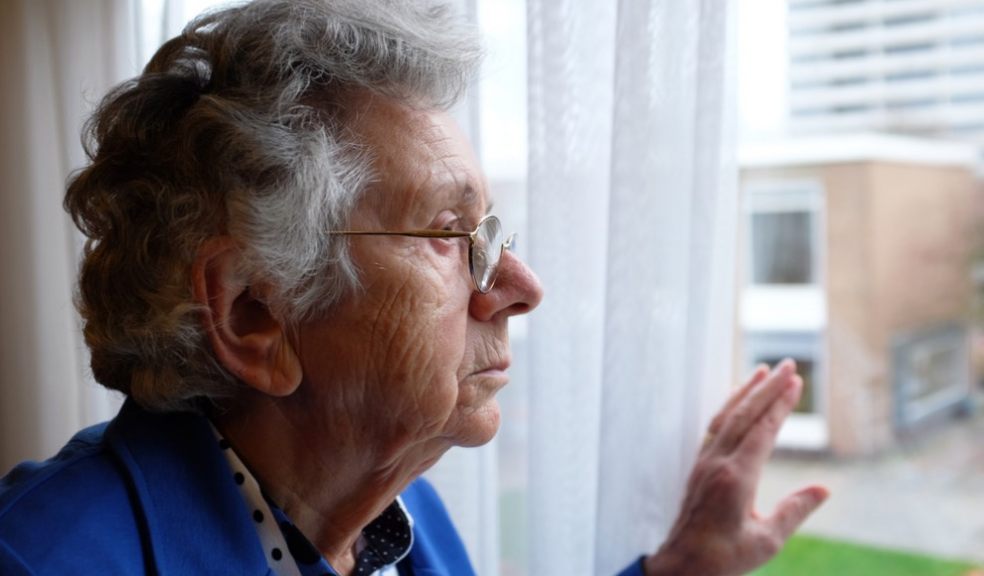
Researchers track COVID-19 isolation effects on older people’s health and wellbeing
An online study of 25,000 people is recruiting participants to help study the impact of COVID-19 isolation on the health and wellbeing of older people, and find new ways to support them.
People aged 50 and over are being invited to join the PROTECT study, an innovative online platform run by the University of Exeter and King’s College London, which already has 25,000 people signed up. Now, a new arm of the NIHR-funded study will track both mental and physical health impacts of lockdown policy on older people, by incorporating a questionnaire to seek the experiences of the cohort as a result of isolation.
The investigation comes after Age UK found that half of adults aged 55 and over have experienced mental health problems – even in a pre-lockdown era. Meanwhile, previous pandemics have resulted in a significant rise in mental health issues, including suicide, alcoholism and self-harm. The ultimate aim of PROTECT’s new study will be to design new ways to support people through lockdown, which remains a reality for many older people who are shielding.
Older adults often face issues such as loneliness, financial insecurity and dealing with major life changes which can be risk factors for mental health, and can face barriers to accesses services. These can all be worsened during the coronavirus pandemic.
Researchers are asking the cohort – amongst the largest of its type in the UK – about their experiences of self-isolating and the immediate impact on mental health. It will include questions about their mental health during the pandemic, on how frequently they leave the house, the extent of isolation practices they are observing, their caring responsibilities, and their level of loneliness. The information will be used to shape future support interventions.
The study includes a battery of cognitive tests that will enable researchers to explore any impact on brain function over the longer term. It is funded by National Institute for Health Research (NIHR) Maudsley Biomedical Research Centre (BRC). The new COVID-19 element is supported through a £17,500 grant from King’s Together Rapid COVID-19 call, a rapid-response funding call to enable its research community to tackle the Coronavirus
Dr Byron Creese, Senior Research Fellow at the University of Exeter said: “Repurposing the PROTECT study means we can find out about the impacts of self-isolation on mental health of people aged 50 and over, using a large-scale long-term study. It’s critical that people stay at home and follow government guidance, and by joining PROTECT, you could help us understand the wider impacts of doing this.
“Weeks or months of adhering to isolation policy could have a really significant impact on the mental health and wellbeing of older people, particularly on top of the loneliness and isolation that some older adults already experience. Over the longer term, we will also be able to tell if these policies have any impact on memory, and whether these policies have any impact on mental health.”
Zunera Khan, Research Portfolio Lead at Institute of Psychiatry, Psychology & Neuroscience said: “A major adverse consequence of the Covid-19 pandemic, indicated in our surveys, will be increased loneliness, which is likely to be a significant factor mediating mental health probes and suicide. Our Protect study provides us with a unique opportunity to explore in depth the consequences of social isolation on mental health and well-being. We will also explore whether certain coping mechanisms are more efficient than others to maintain mental health and wellbeing. This will provide a window into potential interventions to help elderly people facing social consequences.”
Clive Ballard, Professor of Age-Related Diseases at the University of Exeter Medical School, said: “Previous pandemics have taught us that these situations can have a significant impact on mental health. During SARS, we saw a 30 per cent increase in suicide, and a rise in self-harm and alcoholism. Older people are currently having to endure unprecedented periods of isolation in order to protect themselves, and we urgently need to develop new ways to support their mental health through this period.”
The PROTECT study is open to anyone in the UK aged 50 or over with no previous diagnosis of dementia. More information about the study and how to take part can be found at www.protectstudy.org.uk



















